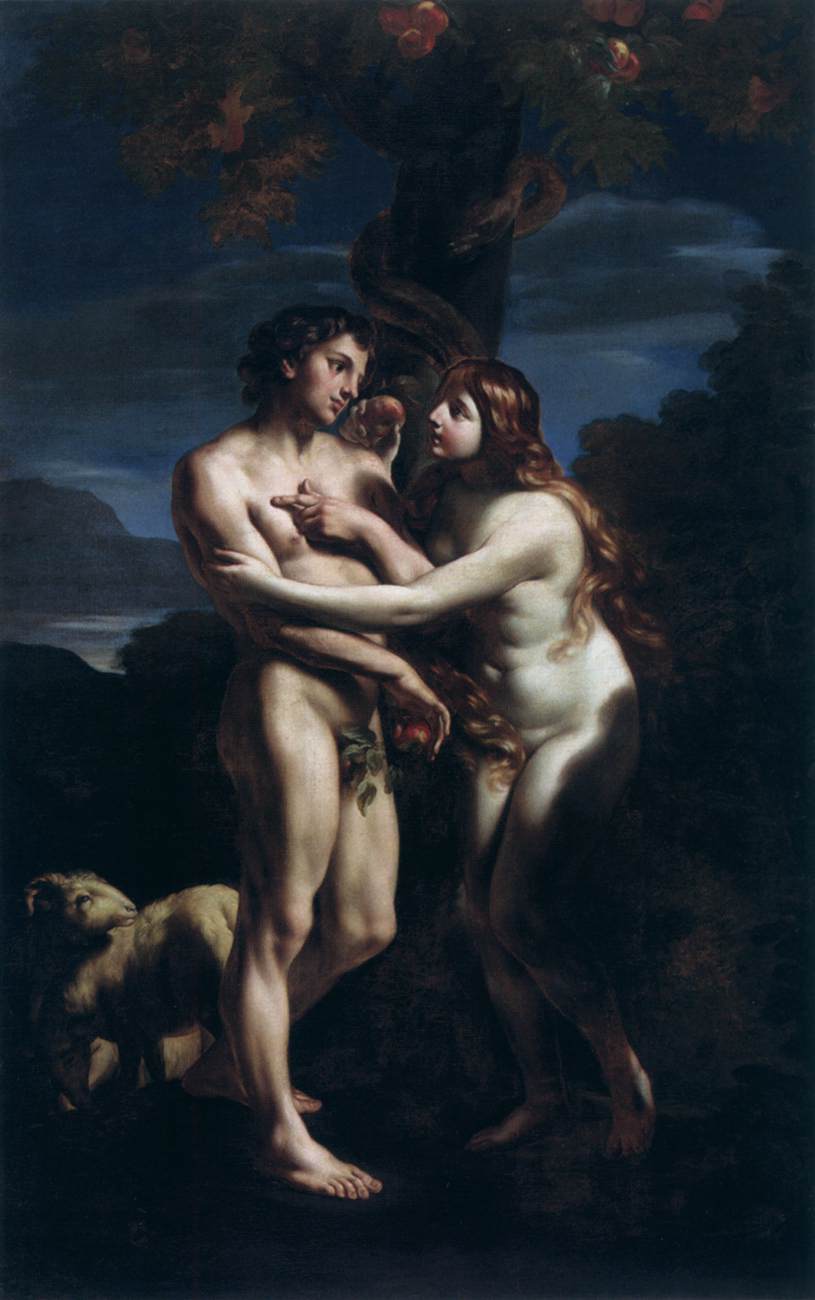MEDITATIONS FOR ADVENT: The Fall of Man
The Fall of Man
c. 1700
MEDITATIONS FOR ADVENT:
5
The Fall of Man
“Now the serpent was more subtle than any other wild creature” (Gen. 3:1). We see the
admirable depth of Christian theology in the apparent weakness of this strange beginning
to the story of our woes. The whole tale seems a fable. A serpent speaks. A woman
listens. A man so perfect and enlightened allows himself to be led astray by the most
common of temptations. All mankind falls with him into sin and death. It seems to be so
much foolishness. Yet we have that sublime saying of Saint Paul: “The foolishness of
God is wiser than men, and the weakness of God is stronger than men” (1 Cor. 1:25).
Let us begin with the subtlety of the serpent, not regarding it as the subtlety of an
irrational animal, but as the subtlety of the Devil, who entered into the body of this
animal by divine permission.
Just as God appeared to man under a sensible form, so also did the angels. God spoke
to Adam. God led the animals to him, and he brought him the wife that he had just
formed from his side. God appeared to him as someone walking in paradise. In all these
appearances there was an exterior shape. As man is composed of body and soul, so God
made himself known by both, that is, by senses and intellect. It was the same with the
angels whom God allowed to converse with man under the forms of animals. Eve was
not surprised to hear a serpent speak. She knew that an angel was speaking to her, but
she was unable to distinguish whether it was a good or an evil one.
“Why did the Lord forbid you to eat the fruit of this tree?” And, a little while later,
“You will not die” (Gen. 3:4). The Devil wished to lead Eve into error, but if he had
begun by proposing the error into which he wished to lead her — a manifest
contradiction of the commandment and the word of God — he would have inspired
horror rather than the desire to listen. So he first sowed the seeds of doubt, asking “Why
has the Lord forbidden you?” The Devil did not dare to say, “He tricked you,” or “His
precept is unjust,” or “His word is not trustworthy.” Rather he inquired, he questioned,
as if he wished to be instructed rather than to instruct the one he wanted to suborn. He
could not have begun in a more insinuating and subtle manner.
When he saw that Eve had been dazzled by novelty and had already consented to the
doubt he had suggested, he lost no time in half measures and stated openly: “You will not
die. For God knows that when you eat of it your eyes will be opened, and you will be
like God, knowing good and evil” (Gen. 3:5). With these words he suggested that God
had attached to the fruit of this tree some divine power by which man would know all in
matters of good or evil, happiness or wretchedness. And then he said, “You will become
like gods.” Thus, he flattered pride; he stroked and excited curiosity. When Eve looked
upon the forbidden fruit, her disobedience began, for the fruit that God had forbidden to
be touched should not even have been looked upon with delight. She saw, the Scriptures
say, “that the tree was good for food, and that it was a delight to the eyes” (Gen. 3:6).
To make herself so attentive to the beauty and the taste of what had been forbidden was
to choose to be seduced.
“She took its fruit and ate; and she also gave some to her husband, and he ate. Then
the eyes of both were opened, and they knew that they were naked; and they sewed fig
leaves together and made themselves aprons” (Gen. 3:6-7). This expression is a modest
and dignified way of saying that they began to know evil. In a word, their minds, which
had risen up against God, could no longer compass the bodies that they should have
commanded. Immediately after their sin appears the cause of the shame that they had
not known until then.
We are all born of Adam and Eve, and that is why our birth — and even our
conception, the very source of our being — is tainted by Original Sin.
O God, where are we, and into what sort of condition have we fallen?
Archbishop Jacques-Bénigne Bossuet






Comments
Post a Comment